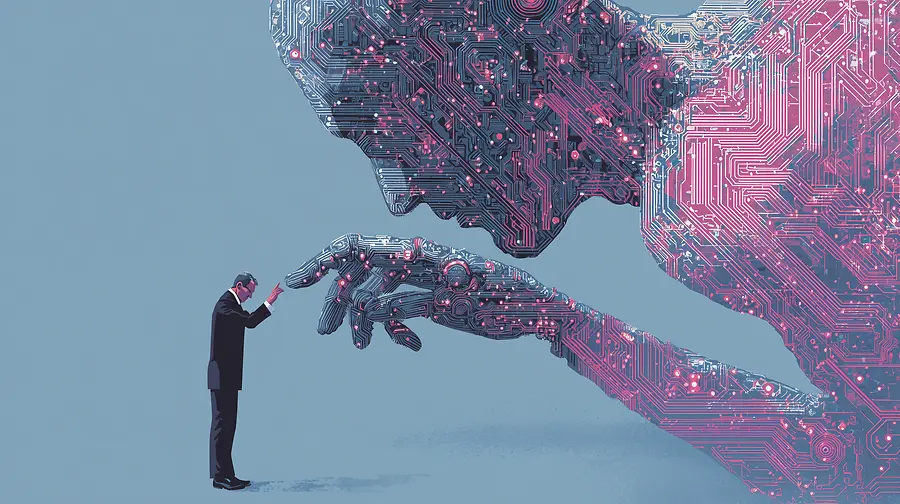When Machines Decide: The Top 10 Ethical Challenges of Artificial Intelligence
Understanding the Ten Urgent Ethical Themes That Will Define Leadership in the Age of Artificial Intelligence

AI Is Transforming More Than Technology. It’s Transforming Us.
Artificial intelligence now touches nearly every part of modern life: healthcare, hiring, education, security, entertainment, finance, and even how we understand “truth.”
After several years leading global data systems and teaching communities how to navigate intelligent technologies, I’ve learned this: AI is not a technical revolution—it is a human one.
To understand what’s at stake, I reviewed findings from Stanford HAI, MIT, NIST, UNESCO, the AI Now Institute, CFR, and more. Ten urgent ethical themes emerged—challenges that leaders must understand.
1. Algorithmic Bias & Fairness
AI mirrors the data it learns from—which means it also mirrors society’s inequities. Discrimination in hiring, lending, criminal justice, and healthcare has already been documented.
“Bias doesn’t disappear in the digital world; it scales.” — Mirtunjaya Goswami
Key Question: Are we building tomorrow’s systems on yesterday’s prejudice?
2. Transparency & the Black Box Problem
Some of today’s most advanced AI systems make decisions even their creators can’t fully explain. That becomes dangerous when lives, access, and opportunities are on the line.
“If we can’t explain an AI decision, we can’t trust it.” — Cassie Kozyrkov
Key Question: Should a system that lacks transparency have influence over human life?
3. Data Privacy & Digital Autonomy
AI learns from enormous amounts of personal data, including patterns we never intended to share. Privacy technologies help, but data autonomy remains unresolved.
Key Question: Who owns the data that trains AI—and who benefits from it?
4. Accountability & Governance
When AI makes a harmful decision, responsibility becomes unclear. Global frameworks exist, but ethical accountability still depends on leadership—not algorithms.
“When no human presses the button, accountability becomes a maze.” — Shikha Maurya
Key Question: Where do we place blame when decisions are automated?
5. Environmental & Sustainability Impact
AI is energy-intensive. Training large models requires massive electricity, water, and rare minerals. Data centers already consume more electricity than some nations.
Did You Know?
- Data centers used 4.4% of U.S. electricity in 2023
- A single large model training run can emit up to 626,000 lbs of CO₂
- Cooling systems consume billions of gallons of water annually
Key Question: Can we innovate without exhausting the planet?
6. Job Displacement & Workforce Shifts
Generative AI may automate up to 300 million jobs globally. While new roles will emerge, the transition will be disruptive—especially for entry-level talent.
Key Question: How do we prepare workers for roles that don’t exist yet?
7. Autonomous Weapons & Military Ethics
AI-powered weapon systems capable of selecting and engaging targets autonomously already exist. Their use raises profound moral and geopolitical questions.
Key Question: Should machines ever have the authority to take a human life?
8. Deepfakes, Misinformation & Truth Erosion
Deepfakes blur the line between real and synthetic media. Research shows that exposure increases belief in misinformation—even after it’s debunked.
“In the age of AI, seeing is no longer believing.” — Cornelia Walther
Key Question: What happens to society when truth becomes optional?
9. Human Autonomy & Algorithmic Influence
Recommendation algorithms quietly shape what we see, buy, believe, and engage with. Over time, that narrows human agency.
Key Question: Are algorithms broadening our world—or shrinking it?
10. The Digital Divide & AI Literacy
AI is creating a new layer of inequality. Access is not just about devices—it’s about understanding. Communities without AI literacy risk being left behind across education, healthcare, civic engagement, and economic mobility.
“If people can’t access or understand AI, they can’t participate in the future.” — William Uricchio
Key Question: Who gets to shape the AI era—and who is left out?
What Leaders Need to Do Now
To lead responsibly in the age of intelligent technology, executives must begin by gaining visibility into how AI operates across their organizations: what systems are in use, how decisions are made, and where data flows. This includes assessing model bias, requiring transparency for high-risk applications, and prioritizing privacy and data minimization at every layer of the pipeline.
Next, leaders must prepare for AI’s broader impact by evaluating environmental costs, planning for workforce reskilling, and ensuring humans remain in the loop for all critical decisions. Responsible adoption also means protecting teams and customers from misinformation, manipulation, and unintended consequences as AI becomes deeply embedded in operations.
Finally, ethical leadership requires weaving inclusion and accountability into every transformation effort. This means expanding access to AI tools and education, closing digital gaps, and embedding ethics into long-term strategy rather than treating it as a compliance checkbox. Leaders who embrace this approach will not just keep pace with change—they will shape a future where technology strengthens human dignity, equity, and trust
Conclusion: The Responsible Exponential as Strategy
The highest-performing organizations of the next decade will embed moral and ethical principles not as compliance obligations, but as core competitive strategy.
This is not a sacrifice of progress—it is a redefinition of progress itself.
An AI system that is biased, unexplainable, environmentally destructive, or dehumanizing is not “more advanced”—it is broken. It will eventually fail in the market, be restricted by regulation, and become a strategic liability.
An AI system that is transparent, fair, sustainable, and human-centered is genuinely more advanced. It can scale globally, earn public trust, adapt to evolving governance, and create lasting societal value.
We now stand at an inflection point where artificial intelligence’s trajectory will be determined not by technological capability—which is advancing exponentially—but by the ethical choices we make today.
The research synthesized here reveals a clear imperative: we must decouple “progress” from growth at any cost and redefine technological advancement as the responsible expansion of human potential within ecological and social boundaries.
The belief that innovation must conflict with ethics is a failure of imagination. Evidence from Stanford HAI, NIST, UNESCO, and leading governance bodies shows that the most successful AI systems are those built with trustworthiness as a foundational architecture—not a last-minute obligation.
Key Resources
- 2025 AI Index Report
- https://hai.stanford.edu/ai-index/2025-ai-index-report
- Policy Research
- https://hai.stanford.edu/policy
- Technical AI Ethics
- https://hai.stanford.edu/ai-index/2023-ai-index-report/technical-ai-ethics
- Privacy in the AI Era
- https://hai.stanford.edu/news/privacy-ai-era-how-do-we-protect-our-personal-information
- Exploring Ethics Through Narrative
- https://hai.stanford.edu/news/exploring-the-ethics-of-ai-through-narrative
- Stanford Ethics of AI Course
- https://stanfordaiethics.github.io


